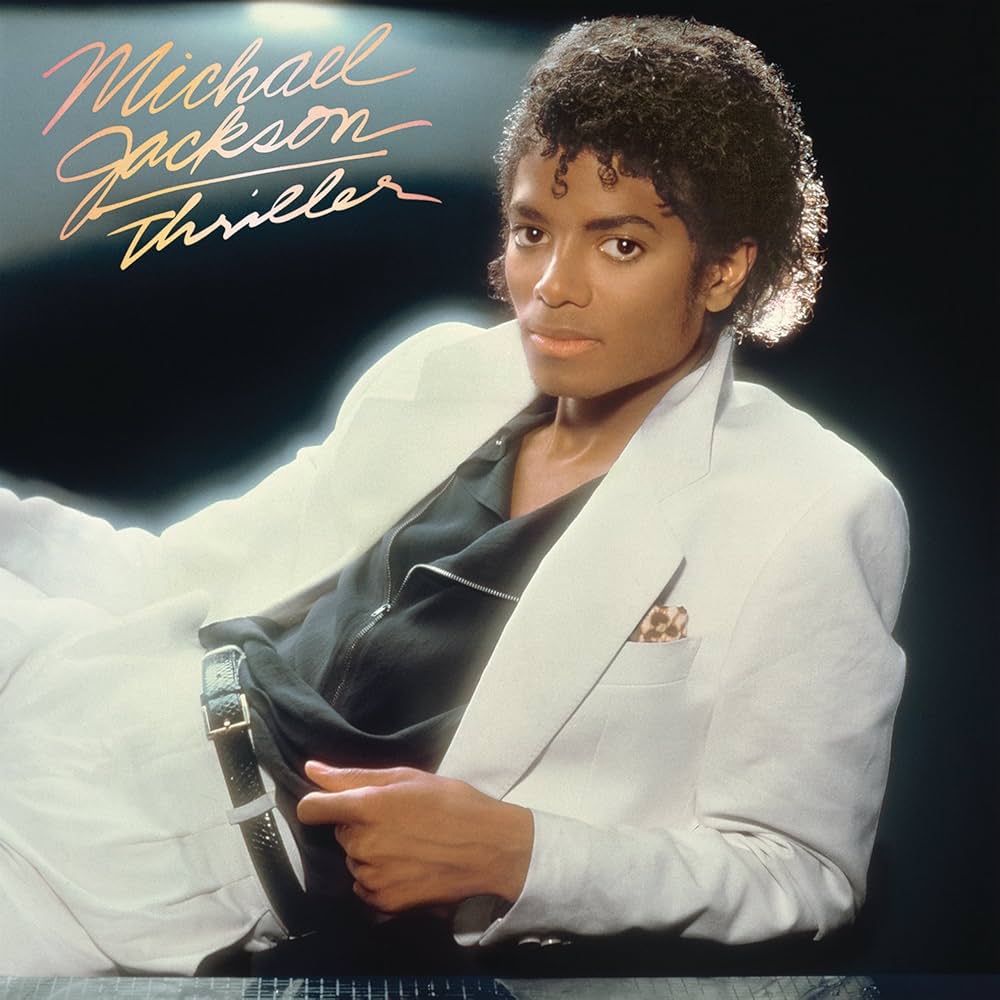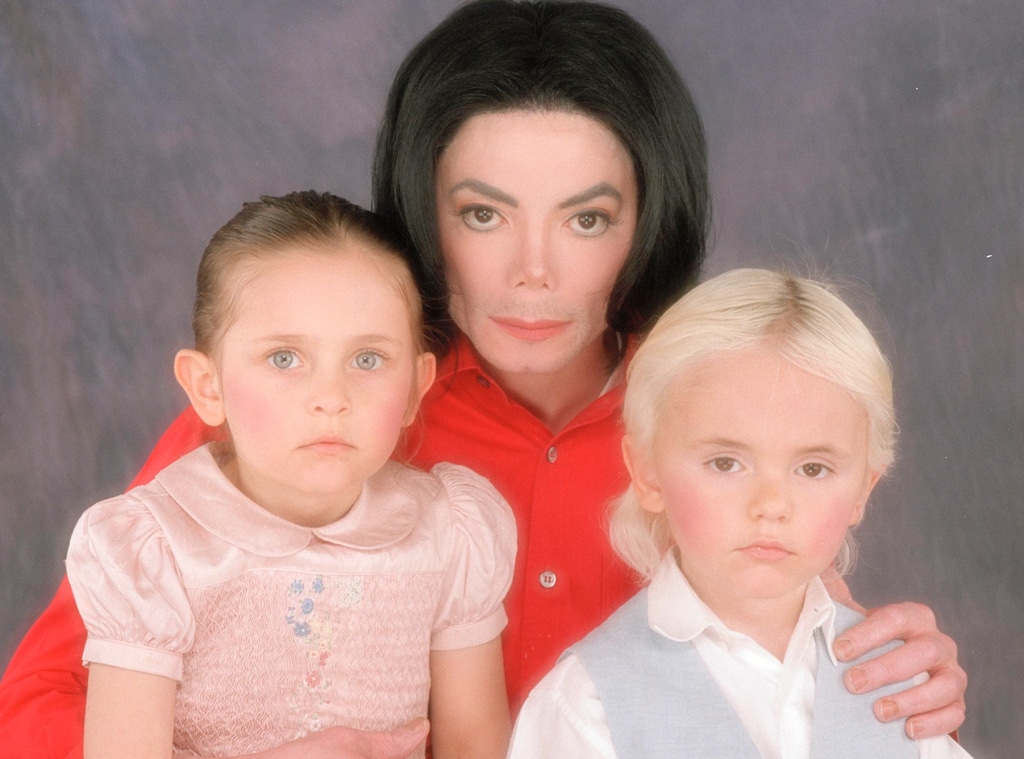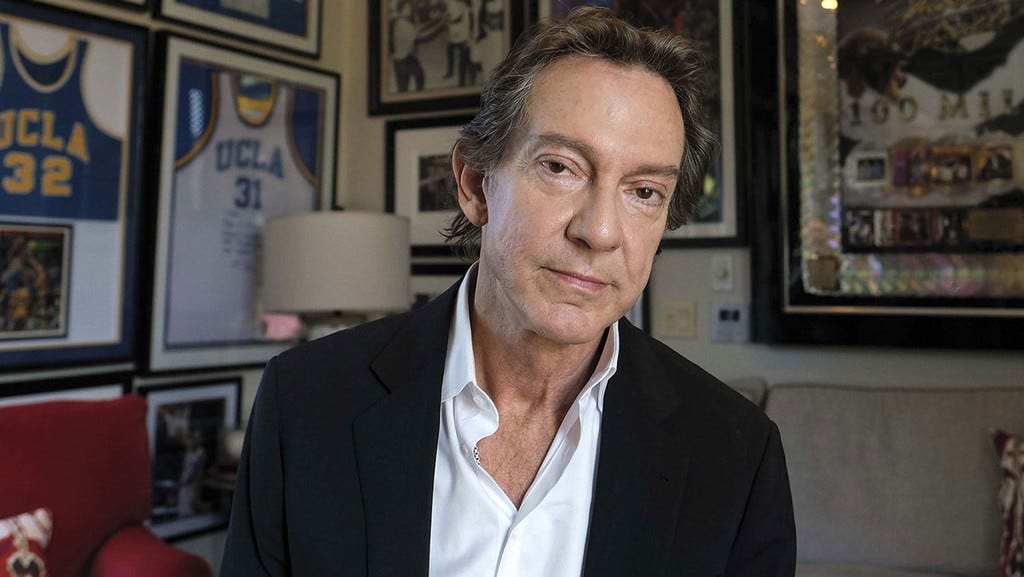What Was Michael Jackson’s Net Worth when he Died?
At the time of his death, Michael Jackson had a net worth of minus $500 million. Despite decades at the top of the music industry, relentless spending habits, costly lawsuits, and heavy borrowing left him hundreds of millions in debt.
Yet the story didn’t end there. In a striking reversal, his estate became one of the most profitable in entertainment history, earning over $2 billion in the years following his passing through record sales, licensing deals, and major projects like This Is It. Jackson’s global impact is undeniable: he has sold more than 750 million albums worldwide, with an incredible 35 million copies flying off the shelves in just the year after his death.
Discover the story behind Michael Jackson’s shocking debt, the $2 billion turnaround of his estate, and the growing battle between daughter Paris Jackson and the executors.
How Much is Michael Jackson Worth?
Michael Jackson died on June 25, 2009, at age 50, just days before launching his This Is It comeback tour.
While the world mourned, court filings revealed a financial empire in crisis. According to documents obtained by The Associated Press and reported via CBS News, Jackson had $567.6 million in assets as of 2007—including his stake in Sony/ATV and Neverland Ranch—but carried $331 million in debt and had just $668,215 in cash.
By the time of his death, his finances had worsened. A June 2024 court filing by his estate’s executors confirmed he owed over $500 million, much of it in default and accruing steep interest documented by The Guardian, (June 28, 2024). That included $40 million owed to AEG and over 65 creditor claims across multiple states.
Yet those same assets laid the groundwork for one of the most remarkable posthumous turnarounds in music history. As of 2026, Jackson’s estate is estimated to be worth approximately $2 billion, according to Investment News. This article explores how the King of Pop’s financial legacy rebounded—and why new legal challenges, including a July 2025 objection filed by his daughter Paris over estate payments as reported by The Independent, (July 2025), may once again reshape the future of his fortune.

Michael Jackson in his later years—a haunting image of the global pop icon whose posthumous estate would grow into a $2 billion empire amid controversy and legal battles.
Michael Jackson’s Estate Battle: Timeline of Paris Jackson vs Executors
-
June 25, 2009 — Michael Jackson dies
The King of Pop dies at age 50 in Los Angeles from cardiac arrest while preparing for a 50-show O2 residency. His estate is left more than $500 million in debt, placed under executors John Branca and John McClain. Beneficiaries named: Prince, Paris, and Bigi Jackson. -
January 11, 2024 — Estate biopic deal
Executors strike a deal with Lionsgate and Universal for Michael, a major biopic directed by Antoine Fuqua and starring Jaafar Jackson. Release later delayed to April 2026. -
March 22, 2024 — Bigi Jackson files motion
Bigi seeks to block his grandmother Katherine Jackson from using estate funds in a legal battle. Filings reveal she has received more than $55 million since Michael’s death, including a monthly allowance and $15M for her home. -
June 28, 2024 — Debt exposure
Court filings confirm Jackson died with over $500 million in debt, much of it accruing at high interest rates. Executors seek authorization to pay law firms for ongoing estate management. -
August 22, 2024 — Sony catalog deal approved
A Los Angeles appeals court allows the estate to sell a portion of Jackson’s music catalog to Sony for $600 million, overruling Katherine Jackson’s objections. -
July 11, 2025 — Paris raises concerns
Paris Jackson objects to executors’ requests for legal fees, calling out “premium payments” for unrecorded attorney time. She accuses the estate of wasteful spending and lack of oversight. -
July 15, 2025 — Executors cite ex-wife issues
Branca and McClain note in filings that legal fees partly cover “issues” involving one of Jackson’s ex-wives, though they do not specify whether it is Lisa Marie Presley or Debbie Rowe. -
August 4, 2025 — Paris accuses lawyers of skimming
Paris files a new motion accusing estate lawyers of exploiting weak oversight to “skim money” from her father’s fortune. Executors respond, saying the estate’s $2B turnaround speaks for itself and dismissing her claims as “baseless and defamatory.”
How Michael Jackson’s Estate Rebuilt a Billion-Dollar Empire
Despite a will, Jackson left a very complex estate. But what followed was one of the most remarkable financial recoveries in entertainment history. Thanks to a combination of aggressive legal strategy, savvy deal-making, and the enduring power of Jackson’s brand, the estate would go on to generate billions.
Strategic Leadership: Branca & McClain Take Over
The turnaround began with the appointment of John Branca, Jackson’s longtime attorney, and John McClain, a respected music executive, as co-executors of the estate. Their strategy was simple but bold: control spending, resolve outstanding legal claims, and monetize Jackson’s global brand. They filed numerous court petitions to restructure royalties, unwind predatory contracts, and clean up years of financial mismanagement as reported by the Harvard Business Review.
A key enabler of their success was the broad authority granted to them in Jackson's will itself. Article V of his will specifically gave his executors "full power and authority at any time or times to sell, lease, mortgage, pledge, exchange or otherwise dispose of the property... upon such terms as my Executors shall deem best," allowing them the flexibility to make crucial deals like the Sony music catalog sale at opportune market times."
Posthumous Profits Begin Rolling In
One of their first big wins was This Is It, the concert documentary compiled from Jackson’s final rehearsals. The film grossed $261 million worldwide and sparked a massive spike in posthumous music sales and licensing deals. Meanwhile, Cirque du Soleil’s Michael Jackson: The Immortal World Tour became one of the highest-grossing tours ever, bringing in over $370 million globally as reported by Billboard and keeping Jackson’s image front and center for a new generation.
The $600 Million Catalog Deal
According to the terms of Michael Jackson’s will, his entire estate is to be turned over to the Michael Jackson Family Trust.[2] The primary beneficiaries of the trust are his three children and unnamed charities. John Branca, an attorney, and John McClain, an accountant, are the trustees of the trust and the executors of Jackson’s estate.
The real financial game-changer came with the estate’s music catalog. Jackson's 50% stake in Sony/ATV, which included rights to Beatles classics and other hit songs, had once been the source of overwhelming debt. But by 2023–2024, the estate had restructured the catalog and sold a portion of Jackson’s music rights to Sony for a reported $600 million according to Variety. That deal alone stabilized the estate’s financial position, paid down remaining obligations, and created a strong foundation for long-term earnings.
Licensing, Broadway, and Global Branding
Beyond catalog sales, the Jackson brand has flourished. MJ: The Musical became a Broadway hit, generating revenue and critical acclaim. Licensing deals with Pepsi, Ubisoft (Michael Jackson: The Experience), and ongoing collaborations with Cirque du Soleil have kept the brand commercially relevant. His likeness continues to appear in documentaries, apparel, memorabilia, and digital media, contributing tens of millions annually. In 2011, Game Developer magazine reported Ubisoft has revealed the Wii, DS and PSP versions of Michael Jackson: The Experience have sold 3 million combined copies worldwide.
Record-Breaking Annual Earnings
According to Forbes, the Jackson estate earned $825 million in 2016—the highest single-year haul ever for a deceased celebrity, largely due to the catalog sale. In 2018, it brought in another $400 million. For over a decade, Jackson has consistently ranked #1 or #2 on Forbes' list of highest-earning dead celebrities, often outperforming even Elvis Presley and Prince.
But the story isn’t over—legal disputes with the IRS and within the Jackson family could shape the estate’s future all over again.
Ongoing Legal Battles: IRS Disputes and Paris Jackson’s Objection

Paris Jackson, the daughter of Michael Jackson, has emerged as both a public figure and a central voice in the ongoing legal battles surrounding her father’s $2 billion estate.
While the financial resurrection of Michael Jackson’s estate has been nothing short of extraordinary, the journey is far from over. In recent years, new legal and tax battles have emerged—some from federal authorities, others from inside the Jackson family itself—that now threaten to reshape how the estate’s billion-dollar fortune is managed and distributed.
A $700 Million IRS Dispute Still Looms
One of the most significant issues facing the estate is an unresolved dispute with the Internal Revenue Service. In 2021, the IRS alleged that the estate had significantly undervalued key assets, including Jackson’s name, image, and music catalog, on its federal tax return. According to filings cited by Rolling Stone and Newsweek, the IRS claimed the estate owed approximately $700 million in back taxes and penalties. As a result, Jackson’s beneficiaries—his mother, Katherine, and his three children, Prince, Paris, and Bigi—have not received regular financial distributions from the estate in recent years.
The case remains under review in tax court, with no clear resolution in sight adding layers of complexity and cost. Beyond the IRS, the estate has also navigated objections to key financial moves. In August 2024, Michael's mother, Katherine Jackson, actively filed a lawsuit and subsequent appeal to block the estate's $600 million music rights sale to Sony Music Group, contending that the transaction violated the terms of Michael's will and his stated wishes." according to Law firm Carrell Blanton Ferris contending that the transaction violated the terms of Michael's will and his stated wishes.
Further complicating matters, Michael's youngest son, Bigi (formerly Blanket), subsequently filed a separate legal action, arguing it was "unfair" for the estate to fund his grandmother Katherine's lawsuit against the executors, as he believed the appeal was not in the children's best interests and had an "extreme longshot" chance of success."
Paris Jackson Files Legal Objection in 2025
In July 2025, Michael Jackson’s daughter Paris Jackson filed a formal objection in Los Angeles County Superior Court, challenging payments and legal reimbursements made from the estate’s accounts. According to reporting by People (July 2025), her filing seeks greater transparency and oversight of how estate funds are being used, particularly regarding large payments to attorneys and outside consultants.
Sources close to the case say Paris is not contesting her inheritance but is asking the court to review the decision-making of executors John Branca and John McClain, whose management has guided the estate since 2009. The objection could potentially trigger a broader audit of estate transactions and force changes in how its assets are controlled moving forward.
The Stakes for the Jackson Legacy
These legal entanglements could have major implications—not just for the heirs, but for the Jackson brand itself. Future licensing deals, catalog sales, and estate-sponsored productions may be delayed or complicated by ongoing litigation. And with estate earnings continuing to climb—reportedly topping $2 billion in value by 2026, according to Investment News—questions about who controls the legacy, and how transparently it’s managed, are more important than ever.
A significant factor in these prolonged legal proceedings is the nature of Jackson's "pour-over will." While intended to transfer all assets not already placed in his trust into it upon his death, leaving some assets outside the trust meant they had to go through probate, making them subject to public scrutiny and potential disputes, such as the ongoing IRS tax issue and recent challenges to the Sony music deal."
Where the Money Comes From: Inside Jackson’s $2 Billion Estate
Jackson’s posthumous brand became a textbook case in intellectual property success —it powers a global financial engine. This wealth isn’t tied to a single blockbuster deal, but rather a carefully managed portfolio of music rights, licensing, stage productions, and brand partnerships.
Music Royalties and Streaming
Jackson’s music still commands huge global appeal. His recordings generate tens of millions per year through platforms like Spotify, Apple Music, and YouTube. Every play of Billie Jean, Thriller, or Smooth Criminal contributes to the bottom line. Physical album sales and special reissues—like anniversary editions of Off the Wall or Dangerous—also bring in revenue, especially internationally.
Catalog Rights and Licensing Deals
A major source of estate value came from Jackson’s publishing rights. The remaining catalog continues to be monetized through licensing and sync placements in films, commercials, and games
MJ: The Musical and Touring Shows
MJ: The Musical, a Broadway hit that debuted in 2022, has been a consistent revenue stream for the estate. With tours now expanding internationally, the production adds to a growing portfolio of theatrical properties. Past successes like Cirque du Soleil’s Michael Jackson: The Immortal World Tour grossed over $370 million, one of the highest-grossing tours by a posthumous artist.
Merchandising and Branding
From official merchandise and collectibles to digital NFTs and gaming appearances, Jackson’s image remains heavily licensed. Deals with brands like Pepsi and various fashion collaborations continue to refresh his presence for new audiences. Even posthumous video games, like Michael Jackson: The Experience, have brought in millions.
Real Estate and Asset Liquidation
Jackson’s former properties, including Neverland Ranch, have been sold or leveraged for cash over the years. While no longer in the estate’s portfolio, the sale of Neverland in 2020 for $22 million helped settle part of the estate’s early debt. Smaller property sales and liquidation of personal effects (art, cars, memorabilia) also contributed to early recovery.
Who Was Michael Jackson?
Michael Jackson was a globally celebrated singer, songwriter, dancer, and cultural icon known as the King of Pop. Born on August 29, 1958, in Gary, Indiana, he rose to fame as the youngest member of The Jackson 5 before launching a solo career that would transform the music industry. His 1982 album Thriller remains the best-selling album of all time, and his influence on music, dance, fashion, and popular culture is still felt today.
Over the course of his career, Jackson won 13 Grammy Awards, sold more than 400 million records worldwide, and was inducted into the Rock and Roll Hall of Fame twice—once with the Jackson 5 and once as a solo artist. Known for pioneering music videos like Beat It, Billie Jean, and Black or White, Jackson also became a humanitarian figure, donating millions to charities and causes.
Despite his massive success, Jackson faced personal and financial struggles in later life, including legal battles, public scrutiny, and mounting debt. He died on June 25, 2009, at the age of 50, just days before he was set to launch his comeback tour, This Is It.

The iconic Thriller album, which has sold over 70 million copies worldwide, remains a cornerstone of Michael Jackson's invaluable music catalog, generating substantial posthumous earnings.In the years following his death, the estate has generated substantial income through strategic management, music royalties, merchandising, and various ventures. For instance, Forbes reported that Michael Jackson's estate earned $400 million in 2018 alone, making him the highest-earning celebrity that year as reported in Forbes.
His music catalog, including timeless hits like "Thriller," "Billie Jean," and "Beat It," continues to generate significant income through licensing, streaming, and posthumous album releases.
More recently, in 2024, his estate topped all celebrities, living or deceased, by earning an estimated $600 million, largely due to a monumental music catalog deal with Sony.
Behind the Curtain: The Man Offstage and His Financial Complexities
Michael Jackson’s personal life, marked by both extraordinary triumphs and profound struggles, significantly influenced his financial situation during his lifetime and presented unique challenges for his estate after his death.
Born on August 29, 1958, in Gary, Indiana, Michael was the youngest of ten children to Katherine and Joseph Jackson. His early introduction to music as part of the Jackson 5 came with a childhood notably shaped by intense pressure and emotional stress due to his father's strict management.

Michael Jackson with children, Paris and Prince
As an adult, Jackson’s personal life became a subject of immense and often sensational media scrutiny, further complicating his public image and financial dealings.
His marriages to Lisa Marie Presley (daughter of Elvis Presley) and later Debbie Rowe (mother of his two eldest children, Prince and Paris) were highly publicized. Jackson’s appearance also underwent dramatic changes, fueling widespread speculation that contributed to his enigmatic public persona.
His extravagant lifestyle and considerable personal expenses, including the upkeep of his famous Neverland Ranch, were major contributors to the financial difficulties he faced in the latter part of his career.
Furthermore, the extensive media coverage and legal battles, notably his 2005 acquittal on child molestation charges, impacted his career and exacerbated his financial strain, leaving him with substantial debt at the time of his passing.
Despite these challenges, Jackson’s children – Prince, Paris, and Blanket (now known as Bigi) – remained central to his life and are now the primary beneficiaries of his revitalized estate.
He was known to be a loving father who prioritized his children’s well-being, a fact that underscores the ultimate purpose of the estate's successful financial management.
Inside the King of Pop’s Multi-Million Dollar Homes
One of the most iconic, yet financially demanding, aspects of Michael Jackson’s personal life was his lavish real estate portfolio. The most famous of these was Neverland Ranch, a sprawling 2,700-acre estate in Santa Barbara County, California.
Jackson purchased the property in 1988 for approximately $19.5 million according to CNBC and subsequently invested millions more transforming it into a fantastical amusement park complete with a private zoo, rides, and extensive art collection, reflecting his desire to create a magical world.

Neverland Ranch, Michael Jackson's fantastical 2,700-acre estate, which ultimately became a symbol of his extravagant lifestyle and contributed to his financial burdens before its 2020 sale for $22 million.
However, the annual maintenance costs for Neverland were substantial, reportedly as high as $10 million per year, contributing significantly to his burgeoning financial difficulties.
By 2008, facing dire financial straits and default on a $24.5 million loan associated with the property, Jackson was compelled to enter a joint venture with Colony Capital LLC, a real estate investment firm led by billionaire Thomas Barrack, to avoid foreclosure. The property was later rebranded as Sycamore Valley Ranch.
After remaining on the market for several years, Neverland Ranch finally sold in 2020 to billionaire Ron Burkle, a former associate of Jackson, for $22 million, a steep discount from its initial 2015 asking price of $100 million.
Despite losing Neverland, Jackson did own other notable properties, including a mansion in Los Angeles and a luxury apartment in Trump Tower, New York. Today, the Michael Jackson Estate adeptly manages its remaining real estate holdings and other assets, ensuring they remain profitable and continue to contribute significantly to his posthumous multi-billion dollar wealth.
Who Inherited Michael Jackson’s Wealth?
Following Michael Jackson’s death in 2009, the distribution of his wealth became a matter of intense public and legal interest. Jackson’s will, originally filed in 2002, was central to this process. It named his mother, Katherine Jackson, as the guardian of his three children, and appointed his longtime attorney John Branca and music executive John McClain as the executors of his estate.

John Branca, one of the astute executors credited with transforming Michael Jackson's estate from deep debt into a multi-billion dollar enterprise.
Under the terms of the will, the majority of Michael Jackson's fortune was directed to the Michael Jackson Family Trust. The primary beneficiaries of this trust are his three children—Prince, Paris, and Bigi (formerly Blanket)—along with various unnamed charities.
According to multiple reports based on the publicly filed will, 40% of his assets were allocated to his children (split evenly), 20% to various children's charities, and the remaining 40% to support his mother, Katherine Jackson, during her lifetime, with any remainder going to the children upon her passing as reported by ABC News.
Furthermore, Jackson had the foresight to stipulate that his children would receive their major inheritances in phased disbursements at ages 30, 35, and 40, ensuring financial maturity according to Law Firm (Carrell Blanton Ferris).
The management of the estate by Branca and McClain has been widely praised as a masterclass in posthumous asset management, successfully transforming Jackson's financial legacy from significant debt into a multi-billion-dollar empire according to CBS News.
Much of Michael Jackson’s vast fortune remains tied up in strategic assets, particularly his invaluable music catalog and other intellectual property holdings. This means that his children will continue to benefit significantly from the estate's substantial and ongoing earnings for many years to come, ensuring the enduring profitability of his iconic brand.
Indeed, thanks to the continued success of his music catalog, licensing deals, lucrative posthumous ventures (such as the "MJ: The Musical" and major catalog sales), and astute real estate management.
His revolutionary career laid the groundwork for this financial success, and his enduring global influence continues to ensure his legacy and wealth grow for generations to come.
Extortion Allegations Against Former Confidant Frank Cascio
In a significant and highly publicized development in July 2025, the Michael Jackson Estate initiated legal action in Los Angeles Superior Court, accusing former friend and manager Frank Cascio of an alleged $213 million extortion plot as reported by People.com.
Cascio, who famously defended Michael Jackson against child abuse claims for decades, including in his 2011 memoir My Friend Michael, is now accused by the estate of threatening to make damaging and false allegations about the late singer unless a substantial sum is paid.
According to court documents obtained by People.com, the estate alleges that Cascio, a longtime associate who knew Jackson since childhood, reversed his longstanding public defense of the pop star after the airing of HBO's 2019 documentary Leaving Neverland.
The estate claims Cascio initiated a "shakedown" in the wake of the film, threatening to "concoct false allegations" against Michael in pursuit of a "hefty payday."
This is particularly notable given Cascio's extensive history of publicly vouching for Jackson's innocence, stating in his memoir, "All the years that I was close to him, I saw nothing that raised any red flags, not as a child and not as an adult. Michael may have been eccentric, but that didn’t make him criminal."
The estate further asserts that it "reluctantly" entered into a confidential $3.3 million settlement with Cascio in January 2020. This agreement, explicitly stating no admission of wrongdoing, included a binding arbitration clause intended to resolve any future disputes privately.
However, the current petition alleges Cascio violated this agreement last year by renewing public threats, initially demanding $213 million, a figure reportedly later lowered to $44 million through his legal team, now led by celebrity attorney Mark Geragos. The estate is seeking to compel arbitration to enforce the terms of the 2020 agreement.
The estate's legal filings argue that Cascio and his associates are attempting to "exploit" Jackson's legacy for financial gain, noting that there is "no protection against defamation for a deceased person." This ongoing legal battle underscores the intricate and persistent challenges faced by the executors in safeguarding the King of Pop's posthumous reputation and immense financial empire.
Internal Scrutiny and Beneficiary Concerns
Despite the estate's impressive growth to a multi-billion dollar enterprise, its management has recently faced internal scrutiny, directly impacting the perceived stability and distribution of this net worth. As of 2026, Michael's daughter, Paris Jackson, a primary beneficiary, has filed court objections raising "serious questions" about the estate's financial practices as report by Us Weekly.
Her concerns include "irregular payments" and "premium payments" totaling $625,000 for a single six-month period in 2018 to three law firms for "uncaptured attorney time."
She also highlights delays in trust fund distributions reportedly tied to an ongoing IRS dispute over the valuation of Michael Jackson's catalog, which could involve an estimated $700 million tax penalty. The estate maintains all payments are consistent with approved practices and that they are confident in their financial oversight.
Biopic Faces New Release Delays
The Michael Jackson biopic, Michael, directed by Antoine Fuqua and starring Jaafar Jackson, faces significant delays, now likely premiering in 2026 as a two-part film.
This decision is due to its nearly four-hour runtime and a crucial legal hurdle: a prior settlement with the Chandler family prohibited dramatizing 1993 allegations, necessitating extensive rewrites and reshoots after principal photography.
Michael Jackson’s Lasting Economic Legacy
Michael Jackson's estate has become a masterclass in posthumous brand management. Through music, licensing, Broadway, and high-profile sales, the estate continues to evolve. But beyond numbers, Jackson's legacy lies in the enduring cultural and financial power of his name—one that, even in death, continues to moonwalk far ahead of the rest.
Michael Jackson Frequently Asked Questions
What is the cause of the death of Michael Jackson?
Michael Jackson died on June 25, 2009, from cardiac arrest caused by acute propofol intoxication, along with other prescription drugs found in his system. His personal physician, Dr. Conrad Murray, administered the fatal dose of the powerful sedative propofol as a sleep aid. Murray was later convicted of involuntary manslaughter in connection with Jackson's death.
What did Michael Jackson say before he died?
According to accounts from a new memoir by John Mason, a close personal friend, Michael Jackson's last known words were reportedly: “I can't function if I don't sleep. They'll have to cancel it. And I don't want them to cancel it.” This referred to the "This Is It" comeback concert series he was preparing for. Some reports also suggest his very last words may have been "more milk," referring to the propofol.
How much money did Michael Jackson leave when he died?
At the time of his death in 2009, Michael Jackson was reportedly over $500 million in debt, despite also having significant assets. Court documents from June 2024 revealed the extent of this debt, which included substantial loans and creditors' claims. This made his estate's financial situation highly complex at the time of his passing.
What was Michael Jackson diagnosed with?
Michael Jackson was publicly diagnosed with several health conditions during his life. He revealed in a 1993 interview with Oprah Winfrey that he had vitiligo, a skin disorder that causes patches of skin to lose their pigment. His dermatologist, Arnold Klein, also diagnosed him with discoid lupus erythematosus (a form of lupus) in 1983. Additionally, a 1984 accident during a Pepsi commercial filming left him with severe burns on his head, leading to ongoing scalp issues. Later analyses and observations also suggested he may have exhibited signs of Body Dysmorphic Disorder (BDD) and features consistent with Narcissistic Personality Disorder (NPD), though these were not official public diagnoses from his lifetime.
Curious About Net Worth? Finance Monthly Has You Covered!
From billionaires and business leaders to your favorite actors, athletes, and entrepreneurs like Paris Jackson, Ozzy Osbourne, and Toni Braxton, we meticulously track the numbers behind the names. We explore not just the figures, but also how fortunes are built, managed, and impacted by unique life journeys.
Explore our full collection of net worth profiles to stay up to date on who’s rising, who’s spending, and how wealth is made and managed in 2026.
👉 Browse all our latest net worth stories HERE
Latest: Discover Bill Clinton’s Remarkable Comeback: From ‘Dead Broke’ to a Vast Presidential Fortune














